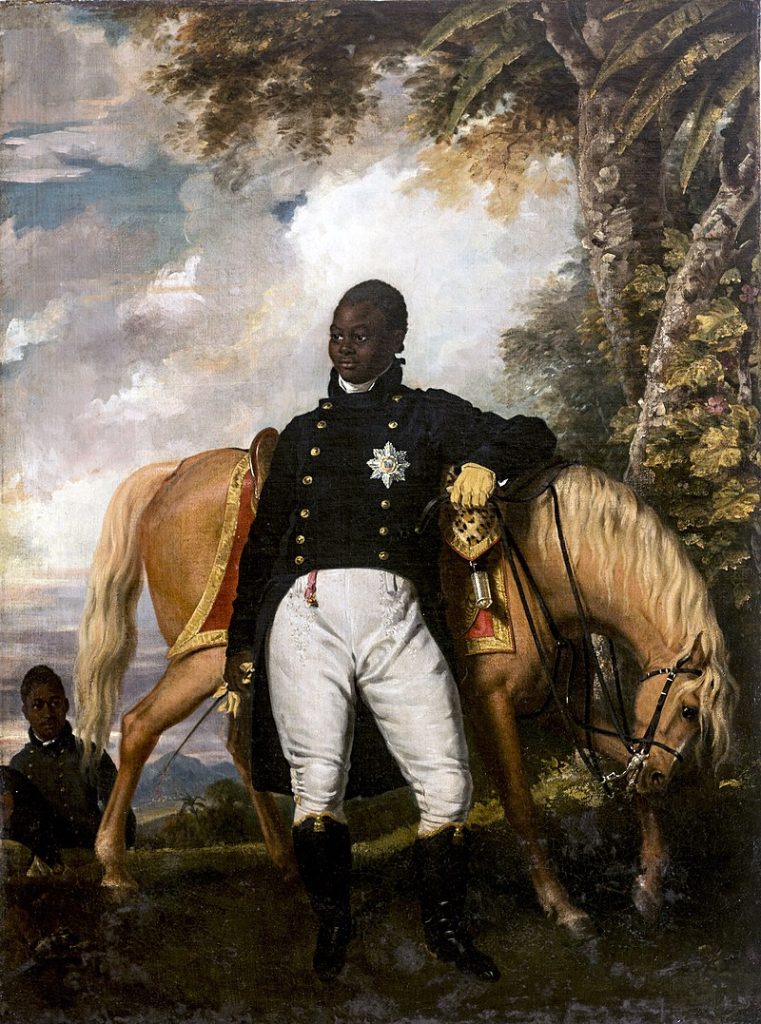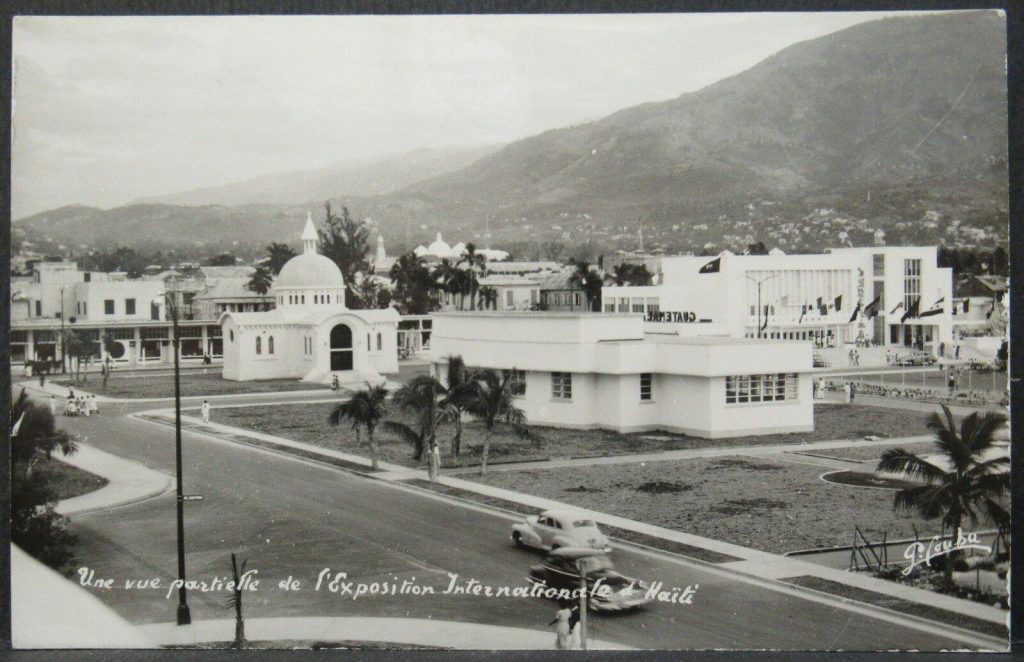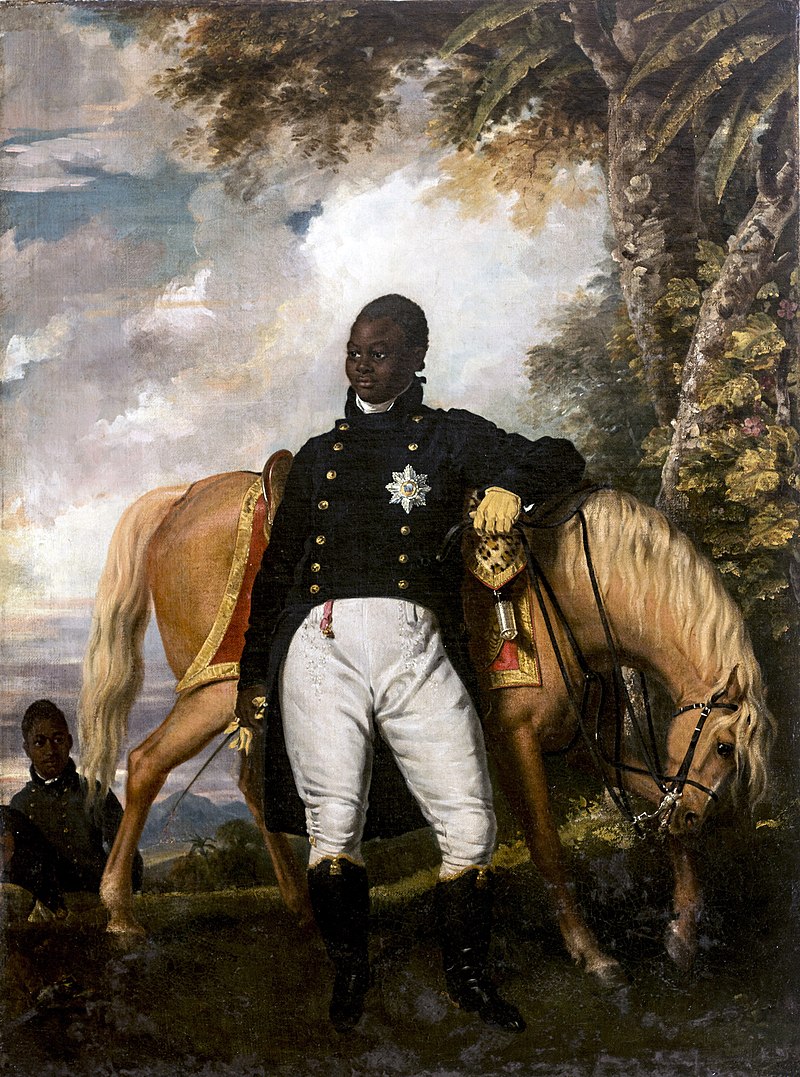Introduction
In 2013, I (Virginie) launched the Haitian History Blog on Tumblr with the intention of creating a platform for lively, yet scholarly-based discussions about Haiti. The goal was never to transform it into a rigid academic endeavor, nor to cover every facet of Haiti’s complex history. Over time, however, the blog evolved from its initial format into a resource-sharing hub aimed at encouraging further research. Today, it stands as an amateur digital humanities project that continues to carve out its niche within the landscape of online resources on Haitian history.
I was fortunate enough not to undertake this project alone. Then, just like now, I have been able to count on key individuals for their insight. Today, I would like to take a moment to acknowledge their help and delve into the reasons that inspired my co-contributors to join and/or continue their work on this blog, to question the idea of producing “scholarship” on the internet, and to explore what it means to engage in a digital humanities project about Haiti during this current time of crisis.
Question 1
As the situation in Haiti has become critical, particularly since the first few months of 2024, some of the same narratives about the “poorest country in the Western hemisphere” have been resurrected in the traditional press and by commentators on social media. Some would say that “everything has been tried” and that Haiti is a “hopeless” country, one “outside of civilization” (as one famous political scientist once said). Given this general pessimism, why, in your relatively comfortable position in the U.S., do you continue to be interested in Haiti? Why be interested in its history?
YH: Like many Haitian-Americans, I suppose part of my passionate interest in Haiti despite its bad press and “hopeless” situation is due to having family roots or ties to the island nation. From a young age, I was aware of aspects of Haiti’s past through a grandparent. Stories and traditions were shared that always reminded me of a distant place where my family came from. That said, the desperate conditions and various crises that have struck this homeland have been nothing short of a series of painful, recurring episodes which have impacted me through relatives still living in Haiti. And while I understand why so many give in to the sense of pessimism with regard to Haiti, a land where impunity has reigned for the Duvalierist thugs and the current nightmare of gang violence, I believe it is the duty of Haitians and Haitian-Americans to continue to hope for a better Haiti. Endeavoring to understand its history and how it reached the nadir of today are important steps in this process of creating a better Haiti.
Question 2
What do you envision your role being in this blog? What topics are you particularly interested in exploring? Are there any areas in scholarship that you feel are lacking or overlooked?
YH: I envision my role in this blog as one of an active participant in the creation of content and posts that challenge readers to think critically or engage with familiar themes and topics in novel ways. In terms of specific interests, I am fascinated by the history of the island’s indigenous people, Haiti’s 19th century political history, and the Haitian Left in the 20th century. I am especially interested in the island’s pre-Columbian past and heritage, an often overlooked topic in Haitian Studies. I believe this is a mistake, since the first floor, or story, in the house that became known as Haiti, is one built by the indigenous population and then radically destroyed by the earliest instance of colonial expansion in the Americas. I believe the island’s pre-Columbian past and period of Spanish colonial rule laid the blueprint for colonialism in the Americas whilst also, through indigenous resistance and creolization, contributed to the making of who we are today.

Question 3
Blogs are typically by nature more informal modes of communication and “scholarship” production. How do you perceive the balance between maintaining a conversational/accessible tone and ensuring some rigor and accuracy expected in more traditional academic discourse? What strategies do you employ to navigate this balance effectively? Could you share your opinion on whether you think the work we do (or will do) on this blog qualifies as “scholarship”? Should it be regarded as such?
HY: While a blog is usually an informal space, I believe a historical blog such as this project can attain a degree of rigor and accuracy through the use of sources indicated in a bibliography or works cited list. In addition to indicating one’s sources, we also must employ some of the methodologies of historians through our critical evaluation of said sources that illustrate how we reached our opinions or theories about topics in Haitian Studies. In that regard, this site can exemplify scholarship while retaining the informal modes of communication expected of blogs. A look at our previous work on the Haitian History Blog on Tumblr will demonstrate what I refer to, since over there we managed to write succinctly and with some rigor and analysis, while also listing bibliographies, and crediting image sources.
Question 4
Digital humanities projects have proliferated in the last fifteen to twenty years, with scholars increasingly turning to digital technologies to analyze and present information. Historians, in particular, have utilized text analysis, geographic information systems (GIS), and the creation of digital archives to advance interdisciplinary research. While this blog operates on a much smaller scale compared to institutional projects, it can still be regarded as a digital humanities endeavor in its own right. What does it mean to you to engage in a digital humanities project focused on Haiti amidst the current crisis?
YH: Engaging in a digital humanities project in the time of crisis is one that, ideally, will help curious minds and those in the Diaspora to think, rethink and question what they know of Haiti to ponder solutions and possible paths to a better future. Despite it being a cliche, those who do not know their past truly are doomed to repeat it. Perhaps digital humanities projects focusing on Haiti can contribute to a better future as Haitian and non-Haitian historians, social scientists, journalists, lawyers, political leaders, and everyday readers engage in new dialogue about Haiti’s past and present.
Question 5
I find that a self-reflective approach to scholarship and blogging can be beneficial. I have insisted on the idea of “crisis” throughout this exchange. I wonder if it helps capture the particular social and historical juncture in which Haiti is presently, or if it contributes to further stigmatize a country, which, as scholar Gina Athena Ulysse (2015) said, needs new narratives. What is your position on this conundrum?
YH: Well, it is undeniable that Haiti is currently experiencing a crisis. Indeed, Haiti, at times, seems to only exist in crisis. Even before the most current troubles facing Haiti with the forced removal of interim PM Ariel Henry or even before the assassination of President Moise, Haiti has endured numerous crises that have prevented the nation’s people from reaching a life of dignity, comfort, and prosperity. Although we agree with Ulysse that Haiti does indeed new narratives, the unimaginable turmoil, agony, and suffering its people have suffered for the last several years is undeniable and unavoidable. I do not believe it is worthwhile to deny that ugly reality of Haiti for so much of its history. However, it certainly can become problematic if the nation is only viewed through the lens of this tragic history.


Leave a Reply